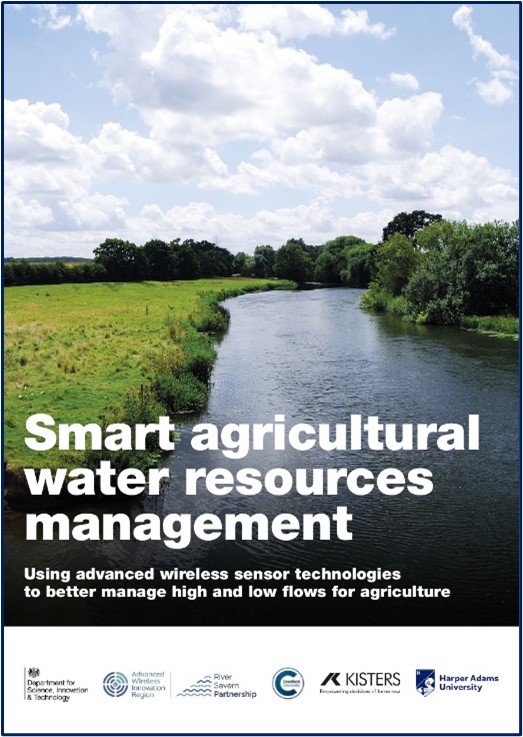Regional water resources planning reforms proposed by the Independent Water Commission (2025) led by Sir Jon Cunliffe, present a major opportunity to better integrate agriculture into wider water resources planning. Water company resources planning is a mature process incorporating climate change and environmental protection with robust options development and clear governance. Various initiatives have started to establish water resources planning for agriculture, including the Environment Agency’s Agricultural Supply Demand Balance Assessment and Local Resource Options, and the regional groups’ work for 2025 regional plans. Water abstractor groups are also forming to coordinate farmer-led actions locally, although governance structures and how they engage with stakeholders is still emerging. However, major challenges remain with different timescales of relevance to the agricultural sector, the variety of sub-sectors and their interests as well as the many individual businesses which need support to take relevant adaptation actions to reduce vulnerability to climate and water-related risks.
This PhD research will develop a toolkit for agricultural water resources planning, helping to support government reforms to establish integrated water planning by undertaking a pilot development and application with a focus on central England. The research will (i) consider how agricultural water resources planning and governance can be reshaped to deliver sector benefits from post-Cunliffe reforms, (ii) how multi-scalar, cross-sectoral planning approaches can be operationalised for agriculture, (iii) how applied remote sensing and geospatial modelling can inform agricultural water resources planning for flood and drought risk management, and (iv) what tools can support better water resources planning, at what scales are the most relevant and which organisations should be responsible for their application.
The research will draw on recent work on the River Severn Partnership Advanced Wireless Innovation Region which demonstrated the potential for technology to support high and low flow planning, collaborative water management and appraisal of strategies to reduce agricultural flood and drought risks (figure shows recent published booklet). This research will also run have synergies with a related project WRW currently has with Newcastle University to improve water resources planning for the energy sector.

This project is not suitable for CASE funding
Each host has a slightly different application process.
Find out how to apply for this studentship.
All applications must include the CENTA application form.
Choose your application route
This PhD will adopt a combination methodology involving (i) an evidence synthesis using a systematic review approach (Pullin et al., 2009), (ii) GIS based modelling and mapping of agricultural water demands and environmental water-related risks, (iii) application of geospatial modelling and remote sensing to assess current and future flood and drought risks for agriculture, (iv) agricultural, water company and environmental stakeholder engagement (via interviews and surveys) to review industry and public risk perceptions and attitudes, (v) the evaluation of alternative governance models to support collaborative agricultural water resources management, and (vi) the development of a blueprint for agricultural water resources management and planning. The research will be predominantly desk-based but will include visits and meetings within the Midlands region to gather base data, to conduct stakeholder engagement activities and key informant interviews.
DRs will be awarded CENTA Training Credits (CTCs) for participation in CENTA-provided and ‘free choice’ external training. One CTC can be earned per 3 hours training, and DRs must accrue 100 CTCs across the three and a half years of their PhD.
The DR will have various training opportunities available at Cranfield including attending relevant modules within specific MSc programmes (e.g. Catchment Management Interactions on the MSc Environmental Engineering course, Water for Sustainable Agrifood Systems on the MSc Future food Sustainability course, as well as being embedded into our ‘Water for Food’ and ‘Catchment Management’ Communities of Practice. These deliver seminars, transferable skills training, and support attendance at relevant meetings and symposia. The DR will also actively participate in activities as part of the formal CENTA training programme.
Water Resources West (WRW) (https://waterresourceswest.co.uk/) is one of five regional groups that provides strategic oversight and co-ordination of water resources across the river catchments of Western England and cross-border river systems with Wales. We support activity aimed at enabling water resource resilience and greater environmental sustainability through multi-sector collaboration to ensure the future sustainability of water resources, considering societal and environmental improvement needs.
UK Irrigation Association (UKIA) (https://www.ukia.org/) was formed in 1980 and promotes an interest in, and better understanding of all aspects of irrigation, collects, exchanges and disseminate information, and raises standards, increases knowledge and competency in water management.
Year 1:
Year 2:
Year 3:
Knox, JW., Holman, IP, Momblanch, A, Grabowski, B, Jahish, A, Mayne, K, and Kay, MG. (2025) Smart agricultural water resources management: using advanced wireless sensor technologies to better manage high and low flows for agriculture https://www.ukia.org/smart-awrm1/
Holman, I.P., and Knox, J.W. (2023) Research and policy priorities to address drought and irrigation water resource risks in temperate agriculture. Cambridge Prisms: Water (1) 1-15, https://doi: 10.1017/wat.2023.7
Independent Water Commission: review of the water sector (2025). Recommendations for reform to improve the water sector regulatory system in England and Wales. https://www.gov.uk/government/publications/independent-water-commission-review-of-the-water-sector
Pullin, AS., and Knight TM (2009) Doing more good than harm – Building an evidence-base for conservation and environmental management. Biological Conservation 142(5), 931-934.
Sutcliffe, C., Hess, TM, Knox, JW. (2023) I think this is where this lovely word ‘sustainability’ comes in: fruit and vegetable grower narratives concerning the regulation of environmental water use for food production. Sociologia Ruralis https://doi.org/10.1111/soru.12437
For any enquiries related to this project please contact Professor Jerry Knox, [email protected].
Further information:
To apply to this project:
Applications must be submitted by 23:59 GMT on Wednesday 7th January 2026.